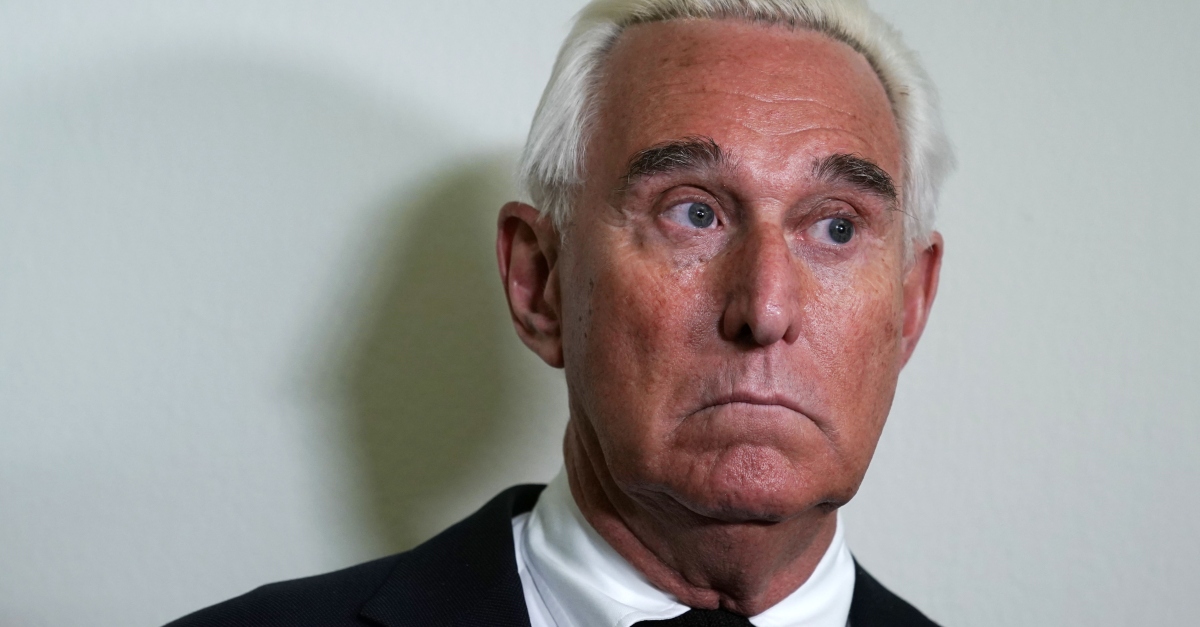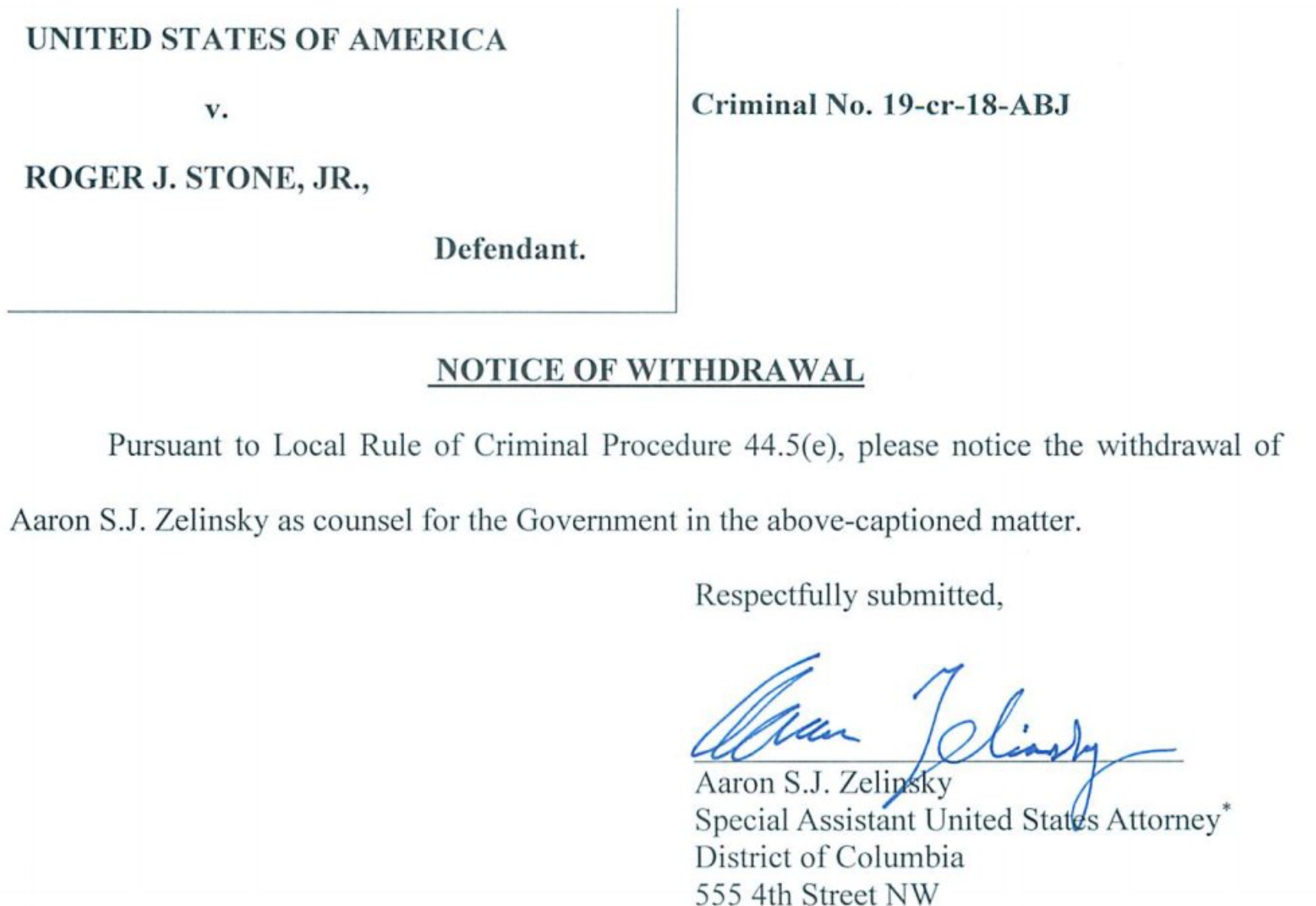
Update, 5:45 p.m.: All four prosecutors, Jonathan Kravis, Aaron Zelinsky, Michael Marando, and Adam Jed (also a former Mueller prosecutor), have withdrawn from the Stone case.
—
Update, 4:23 p.m.: A second prosecutor, Jonathan Kravis, has filed a motion to withdraw from the case. But he has also resigned as Assistant U.S. Attorney. Read more about his role in the Stone trial here.
—
The plot thickens.
A former prosecutor with then-Special Counsel Robert Mueller’s office who was still on the Roger Stone case moved to withdraw from the matter after President Donald Trump criticized the prosecution’s sentencing recommendation and the Department of Justice sided with the president.

Aaron Zelinsky is out, he told the court on Tuesday.
Federal prosecutors in the District of Columbia on Monday did the math on the totality of Stone’s conduct and concluded that a recommendation of seven to nine years behind bars was the appropriate punishment for lying, witness tampering and obstructing justice. That’s what the guidelines told them, they said.
President Donald Trump took to Twitter early Tuesday morning and decried the sentencing recommendation as deeply unfair.
“Cannot allow this miscarriage of justice!” the president said in part, while hinting at a pardon down the line for his pal.
An unidentified senior DOJ official responded by telling reporters that the recommendation for Stone was “extreme, excessive and grossly disproportionate,” that it was not what was discussed, and that prosecutors would clarify their position.
DOJ claims that the decision to lessen the severity of the sentencing recommendation occurred before Trump went to bat for Stone on Twitter.
In any event, Zelinsky has moved to withdraw from the case.
Notably, Zelinsky did everything he could during the Stone trial to get witnesses to talk about Stone’s conversations with the president before the 2016 election.
Zelinsky asked cooperating witness and convicted felon Rick Gates what happened after Trump got off the phone with Stone during the summer of 2016.
During his testimony, Gates said he was in a car with then-candidate Trump while the latter was engaged in a phone call with Stone about upcoming WikiLeaks disclosures. According to a substantially-redacted page from the Mueller Report, Gates was in a Suburban with Trump on the way to New York City’s LaGuardia Airport sometime during “the late summer of 2016.”
Gates replied: “He indicated more information would be coming.”
Gates testimony raised immediate questions about Trump’s written testimony provided to Mueller in late 2018.
Mueller asked Trump several questions about Trump’s communications with Stone and Stone’s knowledge regarding “forthcoming releases of information” from Wikileaks.
In response to that series of questions, Trump wrote that he didn’t recall discussing WikiLeaks with Stone:
I spoke by telephone with Roger Stone from time to time during the campaign. I have no recollection of the specifics of any conversations I had with Mr. Stone between June 1, 2016 and November 8, 2016. I do not recall discussing WikiLeaks with him, nor do I recall being aware of Mr. Stone having discussed WikiLeaks with individuals associated with my campaign, although I was aware that WikiLeaks was the subject of media reporting and campaign-related discussion at the time.
During closing arguments in Nov. 2019, Zelinsky flat out said that Stone lied to protect Trump.
“Roger Stone lied to the House Intelligence Committee because the truth looked bad,” Zelinsky said. “The truth looked bad for the Trump campaign and the truth looked bad for Donald Trump.”
Stone’s trial took a week and a half. He was convicted on all seven criminal counts against him.
Colin Kalmbacher contributed to this report.
[Image via Alex Wong/Getty Images]